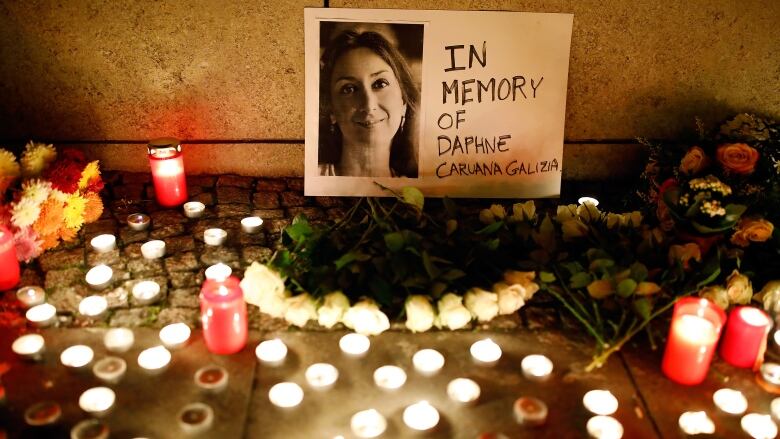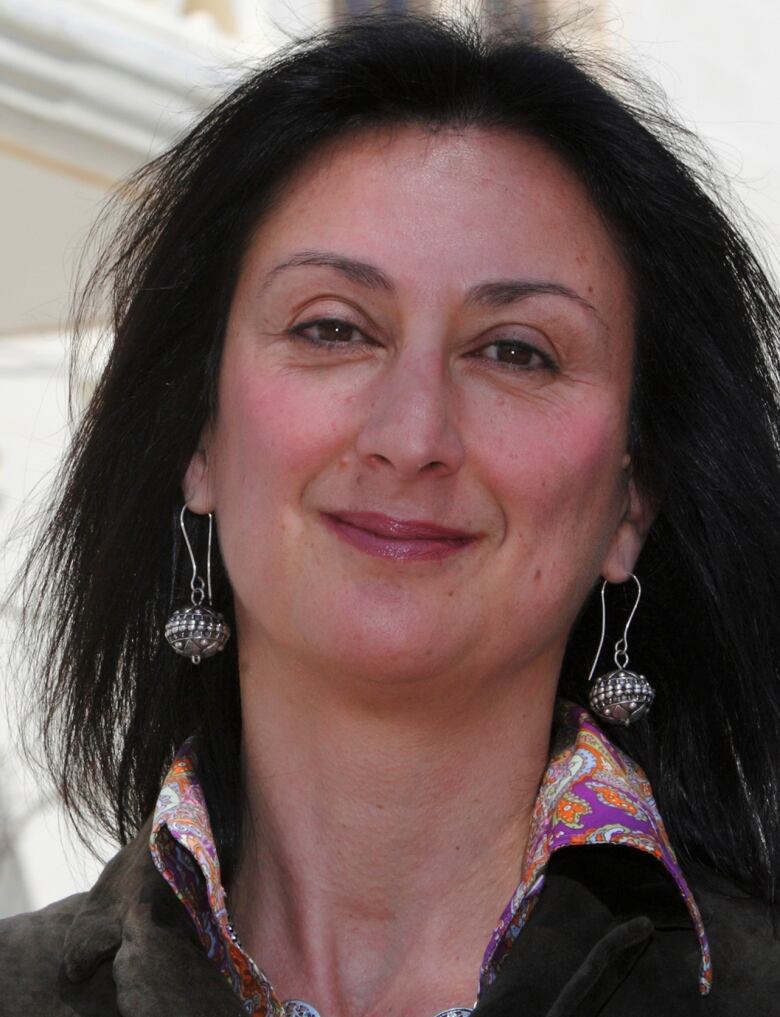Why the murder of a journalist in Malta sent ripples as far as Canada
Daphne Caruana Galizia's death has implications for investigative journalists around the world

Consider what's happened since Maltese journalist Daphne Caruana Galizia was killed by a bomb that exploded under her car, and you'll get a glimpse into just how influential she was.
In a rare move, Pope Francis sent a letter of condolence toCaruanaGalizia'sthree sons.EU leaders called for a full international investigation into what one termed "an event of unprecedented gravity." Malta's government is offering a $2.2 million reward and full protection for anyone with information on who killed her. And journalists from across Malta held a mass demonstration in the streets to show they will not be cowed by those responsible for the journalist's death.
Such was the influence ofCaruanaGalizia, who didn't work for a large news media organization. She was most known for her work as an independentblogger. Her daily posts on Running Commentarywere sometimes read by more people than read all the nations'newspapers combined.
CaruanaGalizia's work was harshly critical of those in power, most especially the country's prime minister, Joseph Muscat, and his inner circle, whom she accused of being corrupt. Her most scathing indictments focused on offshore tax holdings and payments received by Muscat,his wife, and others close to them. Muscat and his wife have denied the claims.

Thosereportswere part of CaruanaGalizia'scoverage ofthe Panama Papers, a cache of documents smuggled out of a Panamanian law firm by an anonymous source.
Thedocuments began to be made public in 2015 in a co-ordinated release bythe International Consortium of Investigative Journalists (ICIJ). More than 100 media organizations across 80 countries reported on the documents, and the coverage causedscandals at the highest levels of government in several countries.
CBC News was a Canadian partner in the release of the Panama Papers, and CBC senior investigative producer Harvey Cashoreisa member of the international consortium. Though Cashorehad never met Caruana Galizia,hefelt the impact of her death when the news began to circulate Monday.
"I belong to the ICIJ listserv, and my iPhone started lighting up. And everybody was going, 'What's going on? What's happening?' And literally, all of the members were hearing this news for the first time. And you know, we're all working on offshore stories from time to time, and this was like this is close to home."

The journalist was interviewed for this week's edition of The Investigators with Diana Swain (Saturday at 9:30 p.m.ET and Sunday at 5:30 p.m.ET on CBC News Network).
Cashorehasbeen asked in the past if he considers the work of investigative journalism to be physically dangerousand has always replied that he doesn't. But Caruana Galizia's death has caused him to reflect on the impact of the work he's doing.
"I don't go to war zones.I don't cover conflict areas," saidCashore. "My work is not dangerous. I always say that. And, for the first time, I felt maybe we are really affecting people with big secrets, and look what can happen."
Police and others who followed Caruana Galizia's work believe she was targeted for the secrets she revealed, though it's not clear if her murder is connected to a story she had reportedor one she was working on that hadn't yet been published.
Cashore says her work, and ultimately her death, illustrate just how much is at stake for those who've illegally hidden their assets.
"They've gone to those offshore jurisdictions to get secrecy, to buy secrecy, and we've been exposing that secrecy, and they don't like it one little bit," he said. "We do our stories, we report, we watch the world react. But now, we're seeing just how far people can go when they don't like our journalism."
While larger journalistic organizations in the consortium such as CBC, BBCand the Guardian newspaper routinely provideprotection to journalists who request it, independent journalists andthose who work for smaller publications have little access to that.

"We have resources beyond ourselves," said Cashore. "And yet, here was a journalist who was a blogger, had no significant resources, and look who they targeted. And so we're realizing how vulnerable some people can be in this family of ours."
It would appear Caruana Galizia herself realized her life was in imminent danger. She had reported threats to policejust two weeks before her death, though details of her report are not known.













_(720p).jpg)


 OFFICIAL HD MUSIC VIDEO.jpg)
.jpg)



























































































